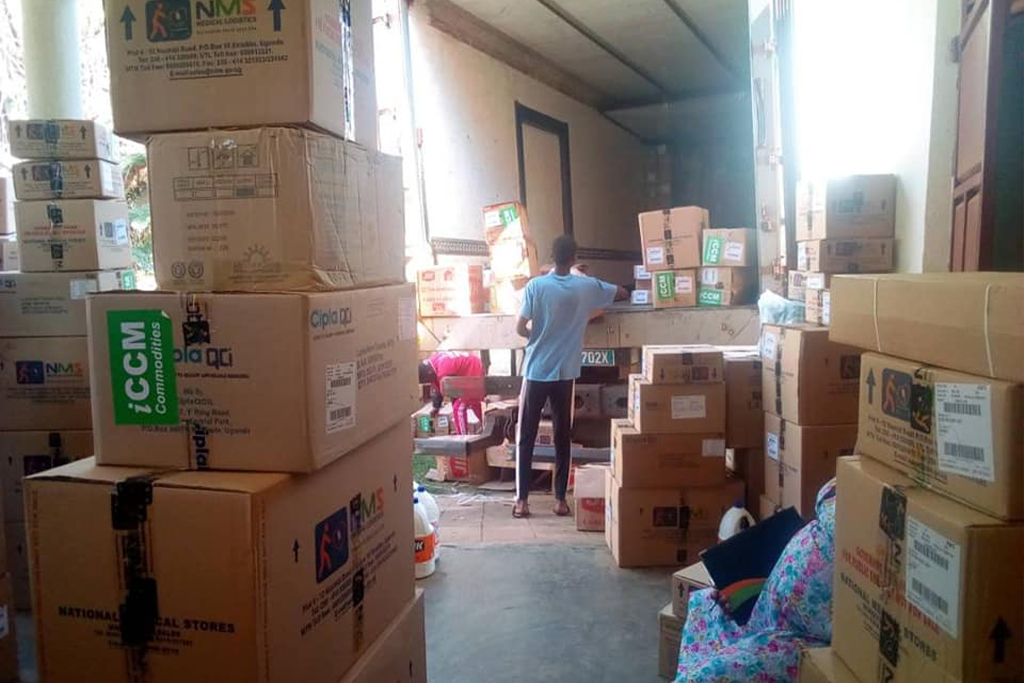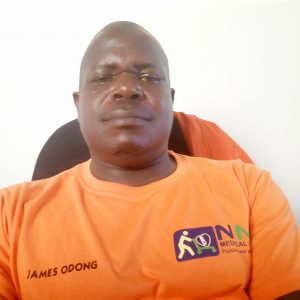
National Medical Stores has made strides in ensuring efficient delivery of medicine and medical supplies to public health facilities.
By James Odong
The National Medical Stores(NMS) is now a center of excellence for quality service of delivering medicines and medical supplies to various health facilities across the country. James Odong, the Public Relations Officer of NMS shares some of the successes NMS has achieved in the past years and how they overcame obstacles to set a path to success.
One of the key achievements registered by NMS was the ability to convince government to decentralize funds for procurement of medical supplies and medicines. Before the 2009/10 Financial Year, money for medical supplies was decentralized with each district and hospital having its own budget to procure.
However, the worry was, government didn’t know how the money was being spent. NMS convinced government to decentralize money to reduce on handling fee. Initially, handling fee was 35 shillings and 65 shillings was used in buying essential medicines and supplies. However, when government recentralized the money at NMS, handling has reduced to 8 per cent shillings and at least 92 shillings is used to procure medicine. The first phase of recentralization was only for government health facilities such as the national and regional referral hospitals, general hospitals, and lower health facilities.
Government realized NMS was doing well after decentralization and supported it with more funding. Initially in the 2009/10 Financial Year, government had given NMS 70 percent of funding. The next Financial Year saw government recentralize all security forces hospitals such as army, Police and Prisons.
NMS also designed the Last Mile Delivery in 2012. This was designed to make sure that medicines are delivered directly to the health centre. The private contractors whom NMS engages in delivering the medicines directly deliver at the door steps of individual government health facility. NMS designed the Last Mile since it had observed that the system of delivering medicines to the District Health Officer’s Office who was then responsible for delivery at health centres had its own inefficiencies such as delays; forcing patients to receive medicines late or resorting to buy from private clinics.
The Last Mile innovation was fundamental since it became an experiment for other African countries. NMS also designed the Delivery Schedule; which is a contract between NMS and all health facilities in the country. The contract is meant to help health facilities understand when to expect medical supplies after making an order. The schedule is also designed with telephone numbers and toll-free lines in case of any challenges and delays in receiving supplies. NMS is able to share the delivery schedule in all health facilities in the country. Each in charge at a government health facility knows exactly when they have given NMS an order and when they expect NMS to deliver. NMS has also established eleven regional centres for Customer Care Representatives across the country. These include: Moroto, Mbale, Soroti, Hoima, Gulu, Arua, Kampala, Fort Portal, Mbarara and now Jinja.
In 2012, NMS also took up the delivery of vaccines after realizing that the Ministry of Health that was then handling the programme under UNEPI did not have resources. At the time, Uganda was rated at same level with DRC and South Sudan in immunization. When NMS took over vaccine delivery, vaccination has since moved from 52 percent to 90 percent and currently Uganda and NMS are centres of study on vaccination for the whole world.
To keep pace with the digital era, NMS developed the SmartCare App which enables everybody involved in the chain of delivery to give NMS feedback in time. The app allows a health worker who has received medical supplies to give feedback to NMS if there’s any problem such as delivering short expiry drugs, items not ordered or late delivery. The health worker can log into the system and send complaints to NMS.
Another digital innovation is the Delivery Monitoring Tool(DMT)- an innovation that helps in tracking and informing health workers of medical deliveries from NMS to health facilities. The DMT also informs DHO’s, RDC and each member of parliament of that particular area. The system also gives names and telephone numbers of the health workers who have received the medicines.
After the President realized that there was a lot of theft of government drugs. He ordered to distinguish government drugs from private ones. NMS created an innovation of embossing the drugs. Today, every medicine that goes to a medical facility has a distinguishing mark of ‘Government of Uganda- Not for Sale’. This means that Ugandans can now distinguish medicines that belong to government and those that do not. Maintaining quality NMS mandate is to maintain the quality of drugs from the time it receives them to the time of delivery. However, after delivery, the mandate is passed on to the health workers.
To maintain quality, NMS has storage facilities with ambient temperature since most medicines are stored at different temperatures. Vaccines are stored in cold rooms and fridges. The quality is maintained until delivery. During transportation, the same temperatures are maintained in trucks. For vaccines, trucks are kept in refrigeration. Our trucks are powered between 2 and 8 degrees centigrade. Some vaccines like Ebola require -80 degrees centigrade.
Global Alliance for Vaccines and Immunizations (GAVI), World Health Organization(WHO) and UNICEF have certified NMS as the best in vaccine logistics. NMS has since agreed with National Drug Authority to set up its own quality control laboratory to continue carrying out of tests of medicine. Recently, NMS received a shs 40 billion USAID support for a new Enterprise Resource Planning(ERP)- a computer system which will manage operations of NMS but also link the government body to all facilities in the country.
In the next year, this will be implemented. In the subsequent years, NMS shall connect all referral and general hospitals, health centre IV and II. Currently, NMS depends on manual orders but the new system will link up all hospitals and they can just login and make their orders electronically.

James Odong,
Public Relations Officer of NMS
Email:james.odong@nms.go.ug
